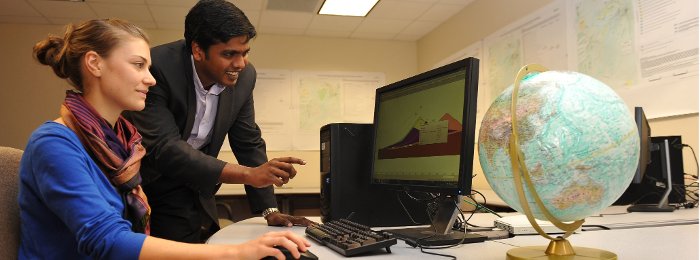Thermal, deformation, and degassing remote sensing time‐series (A.D. 2000‐2017) at the 47 most active volcanoes in Latin America: Implications for volcanic systems
Document Type
Article
Publication Date
12-5-2018
Abstract
Volcanoes are hazardous to local and global populations, but only a fraction are continuously monitored by ground‐based sensors. For example, in Latin America, more than 60% of Holocene volcanoes are unmonitored, meaning long‐term multi‐parameter datasets of volcanic activity are rare and sparse. We use satellite observations of degassing, thermal anomalies, and surface deformation spanning 17 years at 47 of the most active volcanoes in Latin America, and compare these datasets to ground‐based observations archived by the Global Volcanism Program (GVP). This first comparison of multi‐satellite time‐series on a regional scale provides information regarding volcanic behavior during, non‐, pre‐, syn‐ and post‐eruptive periods. For example, at Copahue volcano, deviations from background activity in all three types of satellite measurements were manifested months to years in advance of renewed eruptive activity in 2012. By quantifying the amount of degassing, thermal output, and deformation measured at each of these volcanoes, we test the classification of these volcanoes as open or closed volcanic systems. We find that ~28% of the volcanoes do not fall into either classification and the rest show elements of both, demonstrating a dynamic range of behavior that can change over time. Finally, we recommend how volcano monitoring could be improved through better coordination of available satellite‐based capabilities and new instruments.
Publication Title
Journal of Geophysical Research. Solid Earth
Recommended Citation
Reath, K.,
Pritchard, M.,
Delgado, F.,
Carn, S.,
Coppola, D.,
Andrews, B.,
&
et. al.
(2018).
Thermal, deformation, and degassing remote sensing time‐series (A.D. 2000‐2017) at the 47 most active volcanoes in Latin America: Implications for volcanic systems.
Journal of Geophysical Research. Solid Earth.
http://doi.org/10.1029/2018JB016199
Retrieved from: https://digitalcommons.mtu.edu/geo-fp/186


Publisher's Statement
© 2018 American Geophysical Union. Publisher's version of record: https://doi.org/10.1029/2018JB016199